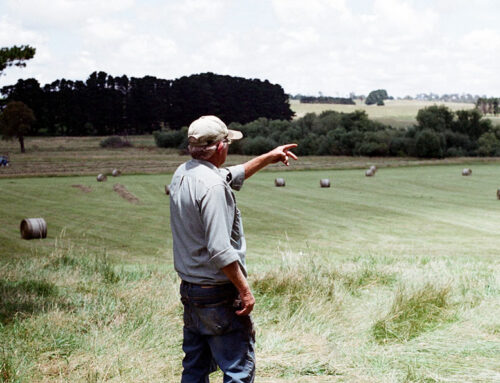As Dec. 31 nears each year, Congress scrambles to meet deadlines. In this last second mad dash, or slow plod, special interests look to attach their pet projects to must-pass legislation funding the government, extending expiring tax cuts, or raising the debt ceiling. Whether it’s the Omnibust in 2019, Taxibus in 2015, or possibly the Build Back Better (BBB) Act this year, one thing never changes: biofuels continue to be showered with expensive gifts.
Biofuels aren’t the only special interest at the top of Congress’s gift-giving list. But they are one of the least worthy. Billed as an industry that can help solve climate change – it doesn’t – biofuels gobble up funds that could be better spent elsewhere. Taxpayer dollars that could be directed toward real climate solutions – such as conserving carbon-rich wetlands, grasslands, and forests – are instead wasted on one that promises progress, but never delivers.
The last time the $3 billion/year biodiesel tax credit was extended was December 2019. It received a retroactive extension for 2018 and 2019 and a prospective extension through the end of 2022. The Environmental Protection Agency (EPA) admitted that in years when producers knew they’d receive the tax break the following year, production ramped up significantly (spoiler alert: that’s the definition of a market distortion). One of the primary goals of the reconciliation bill is climate mitigation. However, if the biodiesel tax break is extended – as BBB proposes to do – greenhouse gas (GHG) emissions are projected to increase. Taxpayers deserve a rain check on this one.
Speaking of climate failures… the Renewable Fuel Standard (RFS). In December 2007, Congress handed the biofuels lobby – primarily corn ethanol – an enormous present that keeps on giving. Like biofuels tax credits, the mandate was sold as a way of reducing GHG emissions and spurring production of non-food-based biofuels. In practice, though, it’s failed on multiple fronts, with EPA admitting this week that biofuels are BAD for the climate. The RFS led to carbon-rich grasslands, wetlands, and forests being converted to biofuels crops like corn and soybeans. Since they require significant amounts of land and fertilizer, wildlife habitat, water quality, and soil health have also suffered. Add in higher fuel, feed, and food costs, small engine problems, etc., and taxpayers are left with a lump of coal.
RFS failures were front and center this week. See, every year by November 30, the EPA is required, by law, to finalize the amount of biofuels that oil refiners must blend into U.S. gasoline and diesel the following year. This week, EPA finally released its proposed (not even final) annual renewable fuel volumes for 2022 and 2021. Yes, a week past its deadline for finalizing 2022 volumes, the EPA is telling oil refiners how much ethanol they have (or had to?) use in 2021. Adding salt to the wound, the U.S. Department of Agriculture (USDA) announced $100 million more in biofuels infrastructure subsidies (grand total of $303 million), plus $700 million in COVID-19 biofuels subsidies. The biofuels lobby still wasn’t satisfied.
As if that wasn’t enough to afford, USDA announced other wasteful bioenergy subsidies last Friday. Ironically titled “Climate Change Bundle” grants and loans, expanded subsidies for corn ethanol facilities, woody biomass, and ethanol blender pumps will only make climate change worse. The Rural Energy for America Program (REAP) wasn’t meant to subsidize corn ethanol but yet magically money appears. And more subsidies announced through the Higher Blends Infrastructure Incentive Program (HBIIP) were regifted from the Trump Administration. The worst part is USDA’s announcement lacked transparency. While the press release associated with the “report” provided extensive details for a couple of projects, the “report” merely disclosed the company name, location, and amount of award. For most projects we don’t know what the money was spent on.
Just a couple specific awards include:
- $250,000 to Al-Corn Clean Fuel, LLC (MN): Don’t take our word for it. The company’s “About” page says nothing about climate, only creating “a guaranteed and stable market for corn.”
- $1,765,220 to Sapp Bros Petroleum Inc. (CT, NE, WY, and CO): Like many gas stations and previous biofuels infrastructure subsidy recipients, petroleum and/or oil and gas is literally in the name. Prior beneficiaries include Shell, BP, and Kinder Morgan.
The reconciliation bill would make matters worse by overspending on more subsidies for the mature biofuels and biomass industries, despite an impending shift to electric vehicles. For instance,
- Biomass subsidies that promote the use of municipal solid waste, livestock manure, and wood for energy, like the Wood Innovation Grant Program and the biomass tax credit – would receive funding bumps and extensions.
- Biofuels infrastructure projects would get $1 billion for an entirely new program even though the same thing – new gasoline pumps and storage tanks for ethanol (because it’s more corrosive than gasoline) – has already been subsidized through three different programs (REAP, BIP, and HBIIP) over the last decade.
- Sustainable aviation biofuels would be added to the “nice” list as well despite questionable climate benefits of using corn and soybeans for fuel.
- New “clean” electricity and fuel tax breaks would be packaged now but sit under the tree until they kick in five years from now.
As long as policymakers continue favoring special interests like bioenergy and oil and gas, climate progress will stall. Instead of over-gifting and re-gifting every year, policymakers should scrap failed mandates and subsidies and start over. Focusing on real, lasting climate solutions will require more work, but taxpayers will be better off for years to come.











Get Social